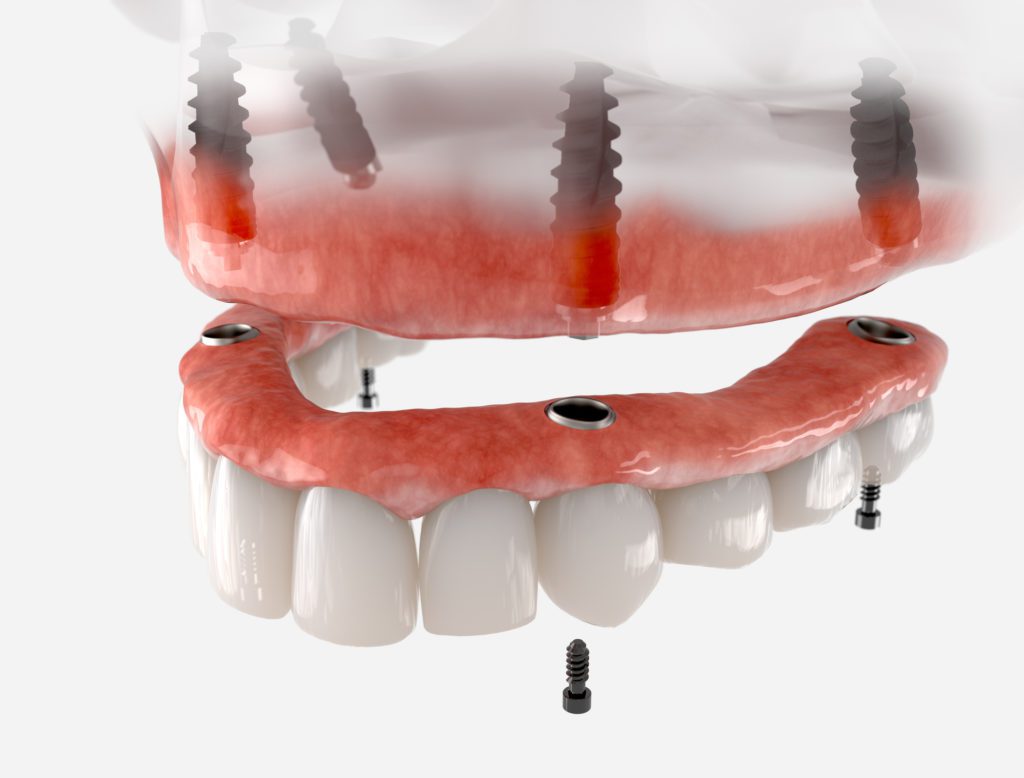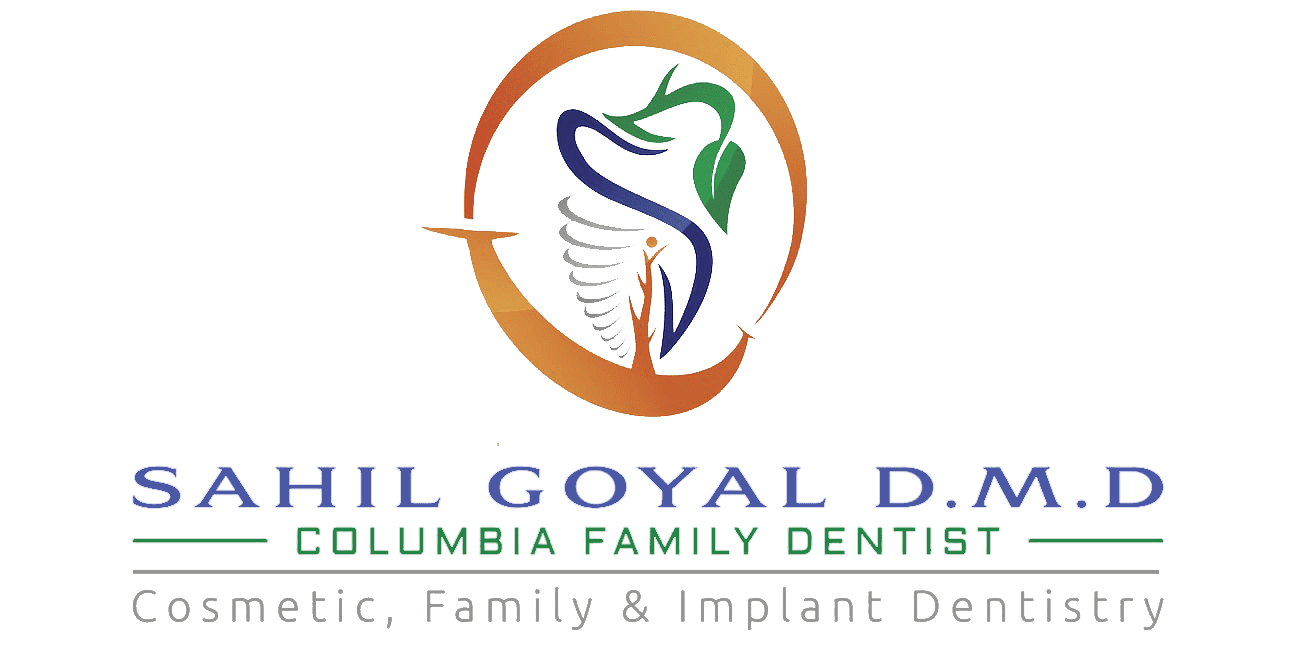Columbia, MD dentist Dr. Sahil Goyal offers a wide range of options for replacing missing teeth. Dental implants and dentures are some of the most popular dental restorations for patients missing an arch of teeth. However, when comparing removable dentures to permanent implants, implants often provide the best long-term results. Learn more about these restorative missing teeth solutions below.
Dental Implants

The Benefits
Dental implants are titanium posts that dentists surgically implant into the jawbone. The titanium implants will fuse with the surrounding bone to create a durable and permanent restoration. Implants offer many advantages over removable dentures. Dental implants do not come with dietary restrictions and will help hold a denture firmly in place. This way, it will not move around in the mouth.
Not only can implants support dentures, but they will also act as a replacement tooth root. This will help to stimulate the jaw bone and prevent further bone loss. Dental implants look, function, and feel just like natural teeth. If you care for your implant-retained dentures with good oral hygiene and biannual dental visits, they can last forever.
The Disadvantages
There are a few disadvantages to choosing dental implants. Only patients with healthy gums and enough bone to support the implant posts qualify for this treatment. You also need to be healthy enough to undergo implant surgery. However, the all-on-four dental implant concept does not require bone grafting, which is a treatment used to ensure patients can receive implants.
Teeth implants cost significantly more with a longer treatment process. It can take up to a year to complete the process, depending on the current state of your oral health. We can help you estimate your cost for treatment and determine if your dental insurance covers part of the cost.
Dentures
The Benefits
A denture is a removable prosthesis that replaces an entire arch of missing teeth. When compared to dental implants, dentures cost significantly less. Dentures require a minimum of four visits. We can complete the denture process in three to six weeks, a faster treatment time than implants.
The Disadvantages
On the other hand, removable dentures come with many disadvantages. Dentures can move around in the mouth and fall out. This can be especially bad if they do not fit properly. Because of this, patients are unable to eat certain chewy foods. Patients usually require a messy adhesive to stabilize removable dentures.
Dentures can be difficult to get used to because they can irritate the gums and feel bulky. It may take several months for patients to get used to this restoration. Removable dentures rest on top of the gums, so they do not stimulate the jaw bone like dental implants. Over time, as the jaw bone slowly deteriorates, your dentures will need to be realigned or eventually replaced. Also, bone loss in the jaw will alter the patient’s facial features, often making them appear older than they really are.
